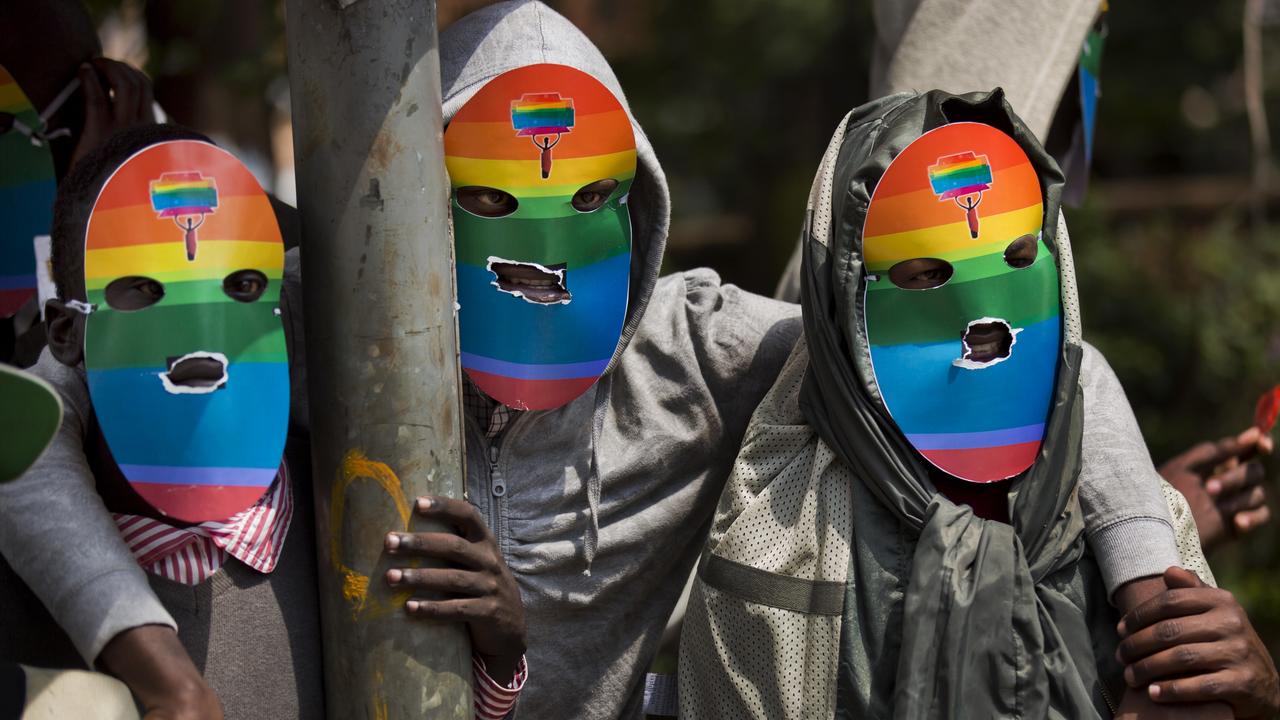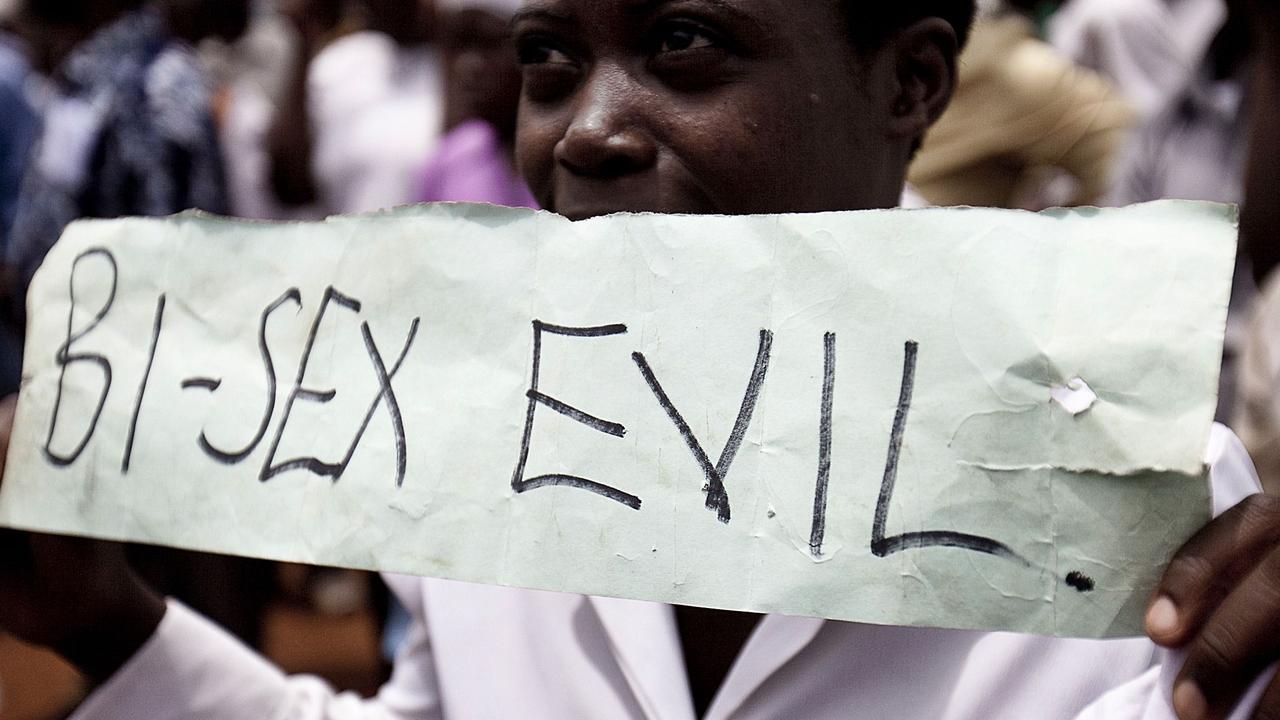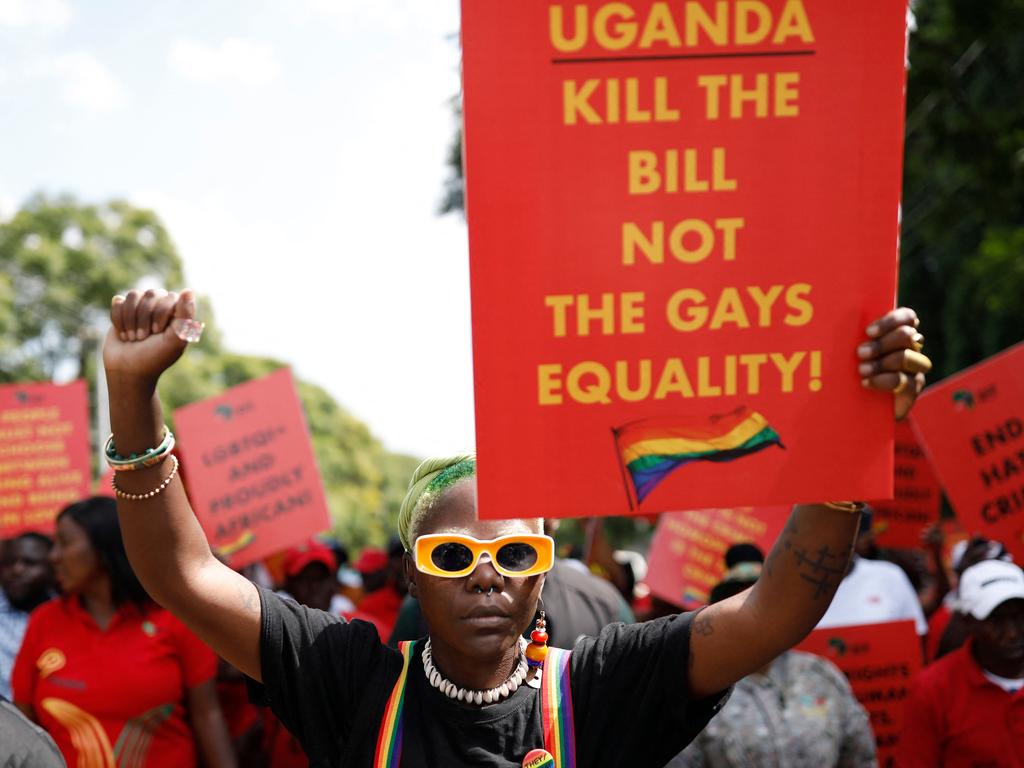Grim reality of Uganda’s heinous new law anti-gay law
An abhorrent new bill is seeing people risk their lives as they already “have a death sentence so don’t see a reason to fight”.
Lifestyle
Don't miss out on the headlines from Lifestyle. Followed categories will be added to My News.
A devastating effect of a draconian anti-gay law in Uganda is seeing LGBTQ+ people risk their lives by not taking their HIV or AIDS medication, intensifying the public health crisis surrounding HIV/AIDS in Africa.
New aggravated homosexuality laws have driven LGBTQ+ individuals away from essential healthcare services, exacerbating the challenge of controlling the infection in the country where 1.2 million people aged 15 to 64 are living with HIV.
It has created an environment of fear where individuals avoid seeking medical care due to concerns about arrest or exposure.
Three months ago, Uganda president, Yoweri Museveni signed a bill criminalising homosexuality with capital punishments, defying pressures from human rights organisations and western governments.

The laws are having a devastating impact.
Emmanuel* began to ration his one-daily pill antiretroviral medication since his medical clinic was closed down.
“I’ve been undetectable for over two years but I don’t if I still am, I’ve been breaking and taking half pills for two months now. I’m down to one bottle and I don’t know what I’ll do when it finishes,” the 26-year-old says.
“We were promised an anonymous restock but I don’t know when that will be. Some people are even selling Antiretroviral drugs at exorbitant prices but we can’t afford it because we don’t have jobs anymore.”
For HIV-positive LGBTQ+ individuals, accessing healthcare is vital for managing their health and wellbeing. The fear of arrest can lead to delayed treatment, interrupted medication regimens, and overall worsened health outcomes.
Another HIV-positive gay man, Andrew*, whose parents kicked him out of home, said he’s been struggling with mental health and depression for years.
“I just ran out of medication and honestly I don’t think I care anymore, either way I have a death sentence so I don’t see a reason to fight,” he says.

On August 21, police in Uganda announced a 20-year-old man had been charged with Aggravated Homosexuality and he is currently facing a possible execution. The defendant was accused and charged with aggravated homosexuality after he “performed unlawful sexual intercourse” with a 41-year-old man. Although there’s currently no specifications of the aggravated circumstances since his arrest on August 18.
Aggravated offences, which carry the death penalty according to the bill, involve sex with minors, elderly or vulnerable people. Use of force and coercion, gay sex that transmits terminal or incurable diseases like HIV, and serial offending are also considered aggravated.
Reuters also reported four other people have been charged for aggravated homosexuality under the law.
The law drew global condemnation after its passage in March, where the 387 members of parliament had initially voted that gay people should be executed by firing squad for consensual sex.

The world bank issued a statement saying the new bill “contradicts the World Bank Group’s values” while halting loans and aid to the country earlier this month.
The United States also imposed travel restrictions on Ugandan officials who supported the bill and President Joe Biden ordered a review of US aid to Uganda.
The new bill also created a domino effect that’s rippling through the African continent.
In the early hours of August 29, Nigerian authorities raided a hotel and arrested over 100 gay men for allegedly organising a same-sex wedding in the country. The Nigeria’s Same-Sex Marriage (Prohibition) Act carries a 14-year prison sentence on anyone who “[enters] into a same-sex marriage contract or civil union,” and a 10-year sentence on individuals or groups, including religious leaders, who “witness, abet, and aid the solemnisation of a same-sex marriage or union”.

The dangerous precedent and domino effect of this new law cannot be overstated as it has triggered a plague of homophobic attacks and intimidation across the entire continent, endangering LGBTQ people whose lives are already at risk.
Some Ugandan activists filed a petition in the Constitutional Court to challenge the draconian law, but it’s uncertain if the petition would have a positive outcome and the judges are yet to take up the case. The bill also targeted activists with 20 years of imprisonment which increased surveillance on LGBTQ+ protests, arrests, harassment, and intimidation, therefore crippling LGBTQ+ advocacy and human rights organisations in African countries.
The intersection of aggravated homosexuality laws and the health challenges with HIV in Africa is a pressing issue.
“We’re all waiting for a miracle. Uganda is my home and it’s certain I’ll die here, at least I’d be at peace if this virus takes me out than Museveni,” said Andrew.
*Names changed
Daniel Anthony is a Nigerian writer living in Lagos, Nigeria.
Originally published as Grim reality of Uganda’s heinous new law anti-gay law








